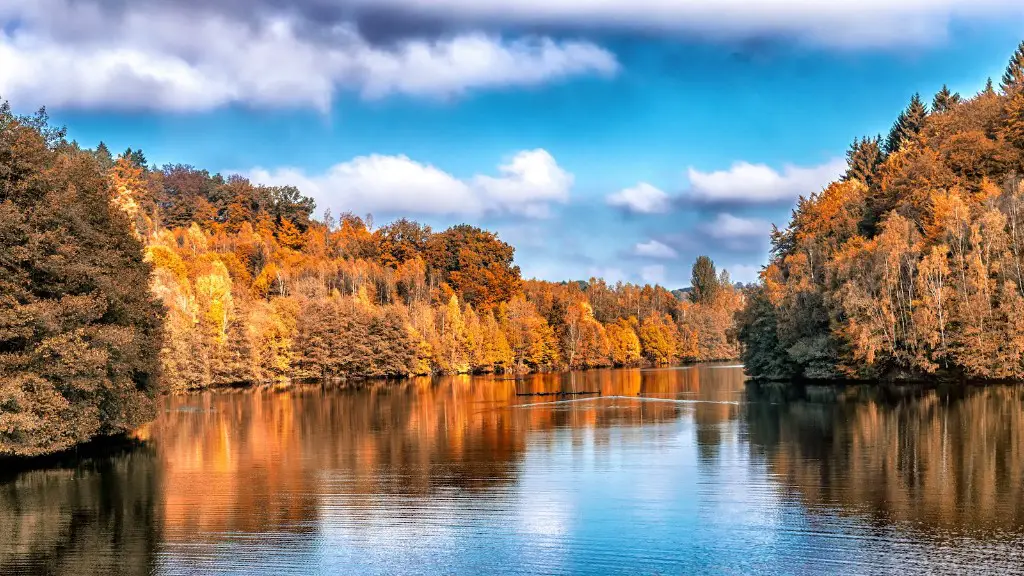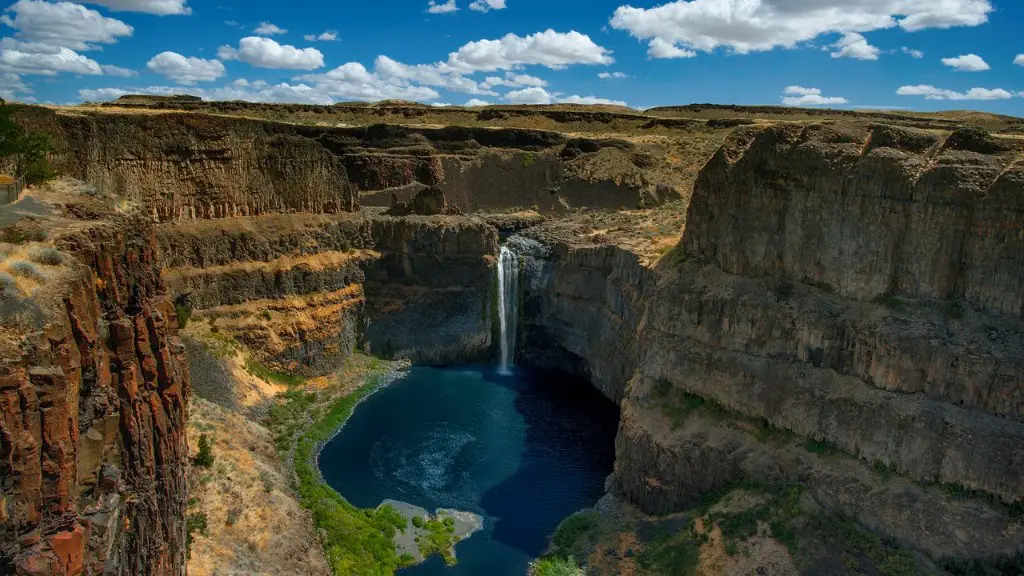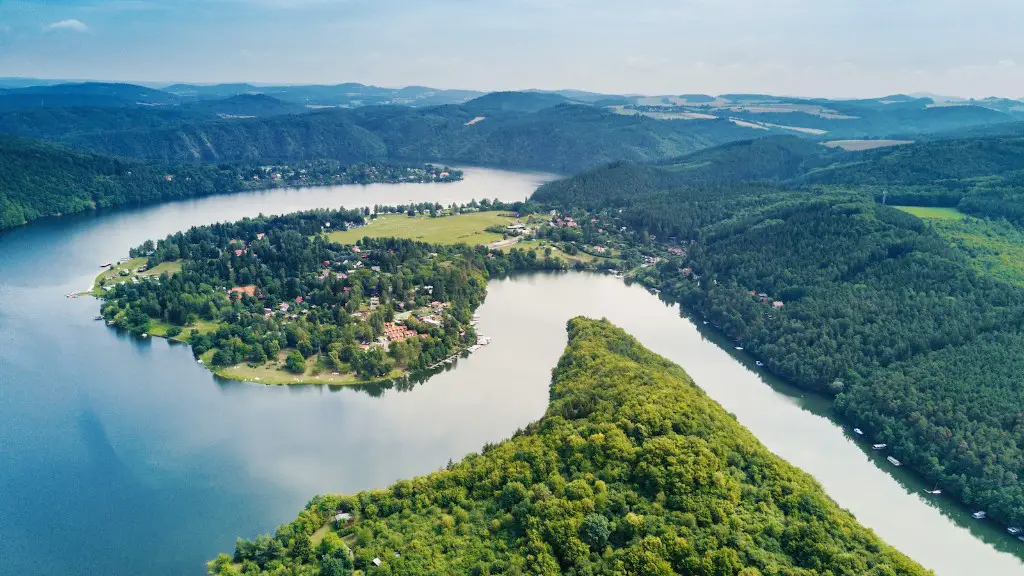The Facts
The Yangtze River is the third longest river in the world and it has seen a dramatic decline in the level of its water resources in the last few years. This decline has been attributed to human activities such as over-extraction of groundwater, soil erosion and dam construction. The effects of these activities have caused parts of the river to dry up during the dry season. Experts say this has also led to changes in the water quality and biodiversity of the Yangtze River.
Data from the Chinese Ministry of Water Resources show that the average annual water volume of the Yangtze River has decreased significantly since 2000. In 2015, the water volume dropped to its lowest level in a decade and only increased slightly in subsequent years. This decline has been linked to changes in the climate, including a decrease in the number of rain days and an increase in the average temperature.
The decline in the water level of the Yangtze River is also due to the construction of dams on the upper reaches of the river. China has built over 15 dams on the river, altering its flow and blocking important fish migration pathways. These dams have also trapped sediments that normally flow downstream, leading to an increase in the concentration of nutrients in the water which has caused algae blooms.
Environmental Impact
The decline in water levels in the Yangtze River has had serious consequences for the environment. The river is home to many species of fishes, mammals and birds, many of which are already endangered. A decrease in the water level has caused their habitats to dry up, leading to a decline in the population of these species. In addition, the quality of the water has deteriorated considerably because of the presence of pollutants, leading to an increase in water-borne diseases.
The impact of the decline in the water level of the Yangtze river can also be seen in the economy. The river is the lifeblood of many cities and towns located along its course and it provides irrigation water for the agricultural sector. The decline in the water level has put a strain on crop productivity and has led to a decrease in economic activity in the region.
Solutions
The Chinese government has taken several measures to combat the decline in the water level of the Yangtze River. In recent years, the government has implemented stricter regulations on the extraction of groundwater and has banned the construction of new dams on the river. The government has also launched several programs to restore the river’s ecosystem and to protect its biodiversity.
In addition, the government has implemented several water conservation measures. These include water reuse, watershed protection and water conservation measures in agriculture. The government has also set up several desalination plants to provide fresh water to areas along the Yangtze River.
Experts Perspectives
Experts have voiced concern over the decline of the water level of the Yangtze River. They believe the root cause of this decline is industrial pollution and the over-extraction of water resources. They argue that the Chinese government needs to take a more proactive approach to reducing pollution and conserving water resources in order to protect the river’s biodiversity.
Experts have also suggested that the government should introduce policies to promote sustainable development along the Yangtze River. These policies should focus on renewable energy, ecological restoration and economic diversification in the region. They argue that such measures would reduce the pressure on the river and help restore its ecosystem.
International Cooperation
The Chinese government has also sought international cooperation to help protect the Yangtze River. The government has signed agreements with other countries and organizations to promote sustainable development and to protect the river’s biodiversity. In addition, the Chinese government has invited international researchers to study the river’s ecology and to make recommendations for the protection of its biodiversity.
The Chinese government has also invited environmental groups from other countries to share their expertise and to help educate the public on the importance of protecting the Yangtze River. These groups have provided valuable input on how to best conserve the river’s resources and have helped to raise awareness about the need for sustainable development along the Yangtze River.
Civil Society Action
The Chinese people have also taken action to protect the environment by advocating for the protection of the Yangtze River. They have called for stricter enforcement of environmental laws and regulations, an end to industrial pollution and the preservation of the river’s ecosystem and biodiversity.
Citizens have also organized protest marches and petitions to pressure the government to take meaningful action to protect the river. They have also launched campaigns to educate the public about the importance of preserving the Yangtze River and its resources.
Economic Impact
The decline in the water level of the Yangtze River and its consequent environmental degradation has had a negative impact on the economy of China. The lower water level has caused an increase in the cost of irrigation water, which has had an adverse effect on the agricultural sector. The lower water level has also caused significant losses in the fisheries sector, leading to a decrease in the incomes of fishers and their families.
Furthermore, the uncertainty around the availability of water in the future has discouraged foreign investors, who are reluctant to invest in the region due to the lack of water resources.
Policy Recommendations
Experts say that Chinese policies need to be more effective in addressing the decline in the water level of the Yangtze River. Policies should focus on water conservation, pollution control and the protection of the river’s ecosystem and biodiversity. The Chinese government also needs to implement policies that promote the sustainable use of water resources, such as the adoption of advanced irrigation technology and the construction of reservoirs.
In addition, the Chinese government needs to ensure that all stakeholders, including the government, businesses and citizens, have an equal share in the responsibility of protecting the Yangtze River. This includes encouraging the public to take meaningful action to conserve water, improving public awareness and education on environmental issues and enforcing stricter environmental regulations.
Alternate Sources of Water
In light of the declining water level of the Yangtze River, experts suggest that alternate sources of water should be explored. This could include the use of groundwater, desalination, wastewater recycling and rainwater harvesting. In addition, the Chinese government could look into investing in new technologies that could help to increase the efficiency of water usage.
The Chinese government could also invest in innovative water conservation projects. This could include building new dams and reservoirs, or restoring wetlands and grasslands. Such measures could help to improve water availability in the region and could help to reduce the impact of droughts and floods.
Climate Change
The Chinese government needs to do more to address climate change, which is one of the main causes of the decline in the water level of the Yangtze River. The government needs to commit to more ambitious targets to reduce green house gas emissions and support the development of renewable energy sources.
In addition, the Chinese government should invest more in the development of climate adaptation strategies. This includes introducing policies to protect coastal areas from flooding and drought, investing in water storage systems and stormwater management and improving infrastructure.
Conclusion
The decline in the water level of the Yangtze River is a serious problem that needs to be addressed. The Chinese government needs to take meaningful action to reduce pollution, conserve water resources and protect the river’s biodiversity. In addition, citizens and businesses need to do their part and take action to reduce the impact of their activities on the environment. To succeed in protecting the Yangtze River for the future, both the government and citizens need to work together to create a strong, unified movement to protect the river and its resources.


